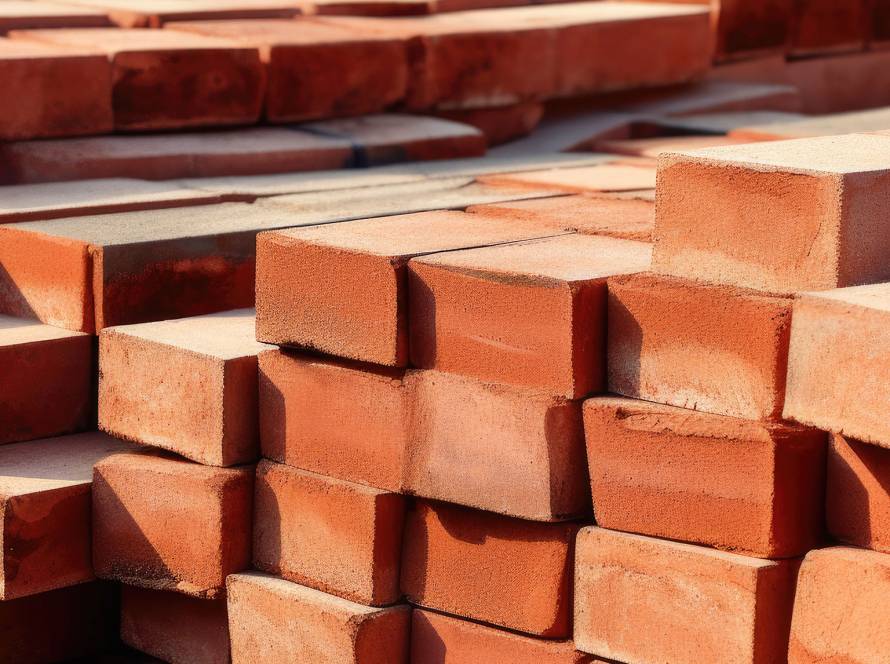With the construction industry responsible for a significant share of global carbon emissions, there is an urgent need to adopt more sustainable practices. The use of sustainable building materials is key to creating eco-friendly structures that minimize environmental impact, conserve resources, and promote healthier living spaces. In this detailed post, we’ll explore various sustainable building materials, their benefits, and how they contribute to building a greener future.
1. What Are Sustainable Building Materials?
Sustainable building materials are those that reduce environmental impact throughout their life cycle, from production to disposal. These materials are sourced responsibly, minimize energy use, and promote long-term durability. They can be natural, recycled, or energy-efficient, contributing to green construction and improved resource management.
Examples of sustainable materials include:
- Bamboo
- Recycled steel and concrete
- Insulating concrete forms (ICFs)
- Green roofs and eco-friendly paints
2. Benefits of Using Sustainable Building Materials
a) Environmental Benefits
- Reduced Carbon Footprint: Eco-friendly materials lower greenhouse gas emissions during production and use.
- Waste Reduction: Using recycled or reusable materials minimizes landfill waste.
- Resource Conservation: Sustainable materials often use renewable resources like bamboo or recycled metals.
b) Economic Benefits
- Lower Maintenance Costs: Durable materials reduce the need for frequent repairs and replacements.
- Energy Savings: Improved insulation and energy-efficient systems lower utility bills over the building’s life.
- Increased Property Value: Green-certified buildings are in high demand, offering better returns on investment.
c) Health and Wellness Benefits
- Better Indoor Air Quality: Non-toxic materials reduce exposure to harmful chemicals.
- Natural Lighting and Ventilation: Green building materials promote healthier living and working environments.
3. Examples of Sustainable Building Materials
a) Bamboo
Bamboo is a fast-growing renewable resource that is lightweight yet strong, making it ideal for flooring, walls, and even structural elements.
- Benefits: Rapid regeneration, high strength, and flexibility.
- Applications: Flooring, wall panels, and furniture.
b) Recycled Steel and Concrete
Recycled steel reduces the need for mining new ore, while recycled concrete can be used as aggregate in new concrete production.
- Benefits: Lowers energy use and landfill waste.
- Applications: Structural frameworks, foundations, and reinforcements.
c) Green Concrete
Green concrete incorporates recycled materials such as fly ash or slag and requires less energy to produce.
- Benefits: Reduces CO₂ emissions compared to traditional cement.
- Applications: Foundations, pavements, and load-bearing walls.
d) Reclaimed Wood
Reclaimed wood repurposes timber from old buildings, reducing the need for new logging and preserving natural forests.
- Benefits: Unique aesthetics and reduced deforestation.
- Applications: Flooring, furniture, and wall cladding.
e) Insulating Concrete Forms (ICFs)
ICFs are modular blocks made from polystyrene or other insulating materials. They improve energy efficiency by providing thermal insulation.
- Benefits: Enhanced energy performance and soundproofing.
- Applications: Walls and foundations in residential and commercial projects.
f) Green Roof Systems
Green roofs are covered with vegetation, providing insulation, improving air quality, and managing stormwater runoff.
- Benefits: Regulates building temperature and reduces urban heat island effects.
- Applications: Roofs of homes, offices, and public buildings.
4. Certifications and Standards for Sustainable Building Materials
To ensure that the materials used are truly sustainable, look for recognized certifications:
- LEED Certification (Leadership in Energy and Environmental Design): A globally recognized standard for green buildings.
- BREEAM (Building Research Establishment Environmental Assessment Method): A leading sustainability certification.
- Forest Stewardship Council (FSC): Ensures wood products come from responsibly managed forests.
- Energy Star: Certifies energy-efficient appliances and building materials.
5. How Sustainable Materials Contribute to Energy-Efficient Buildings
Sustainable materials reduce the energy consumption of buildings through better insulation, reduced waste, and efficient systems. Here’s how:
- High-Performance Insulation: Materials like ICFs and wool insulation reduce heating and cooling needs.
- Solar Panels and Cool Roofs: Eco-friendly roofs reflect sunlight and generate clean energy.
- Efficient Windows and Doors: Double-glazed windows and insulated doors reduce energy loss.
Example:
A house built with insulated concrete forms (ICFs) can reduce energy use by up to 50% compared to traditional construction methods.
6. Challenges in Adopting Sustainable Building Materials
While the benefits are clear, there are some challenges in widespread adoption:
- Higher Initial Costs: Some eco-friendly materials can be more expensive upfront.
- Limited Availability: Certain sustainable materials may not be widely available in all regions.
- Training and Expertise: Builders need specialized knowledge to use these materials effectively.
At Gulf General Trading, we help you overcome these challenges by providing access to a wide range of sustainable materials and expert advice on their application.
7. Future Trends in Sustainable Building Materials
As the construction industry evolves, several trends are shaping the future of sustainable materials:
- 3D Printing with Sustainable Materials: Using bio-based materials for additive manufacturing.
- Biodegradable Materials: Products like mycelium (fungus-based materials) that decompose naturally.
- Carbon-Negative Materials: Innovations like carbon-absorbing concrete are gaining popularity.
- Smart Materials: Self-healing concrete and phase-change materials that improve energy efficiency.
8. How Gulf General Trading Supports Green Construction
At Gulf General Trading, we are committed to promoting sustainability through our products and services. We offer:
- Eco-Friendly Materials: Access to a variety of sustainable building products, including bamboo, green concrete, and energy-efficient systems.
- Expert Guidance: Our team provides insights on the best materials for your green projects.
- Reliable Supply Chain: We ensure timely delivery of sustainable materials, helping you stay on schedule.



